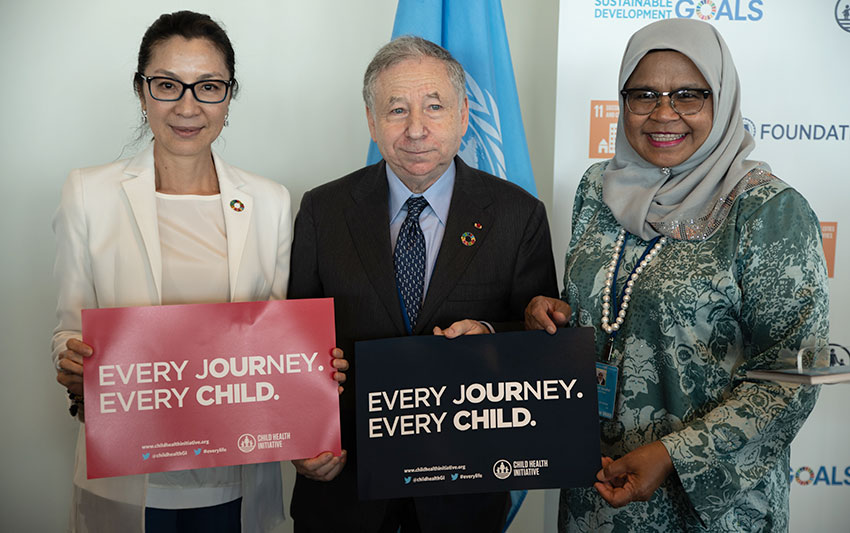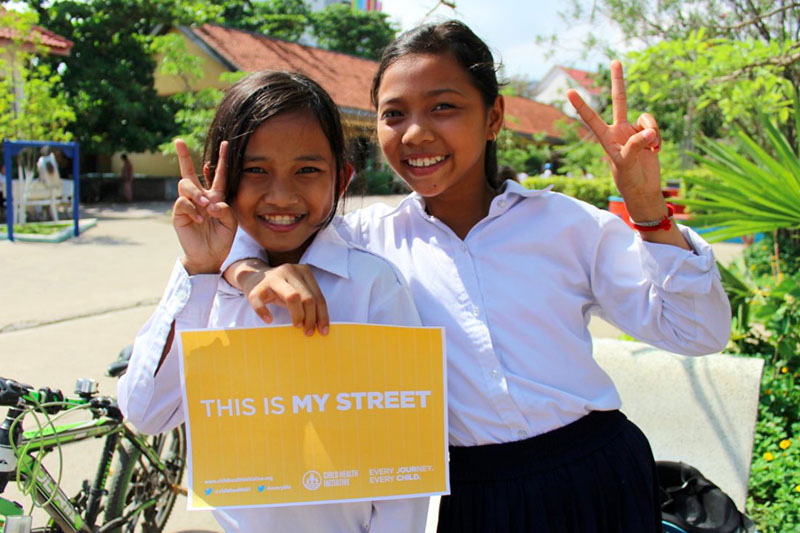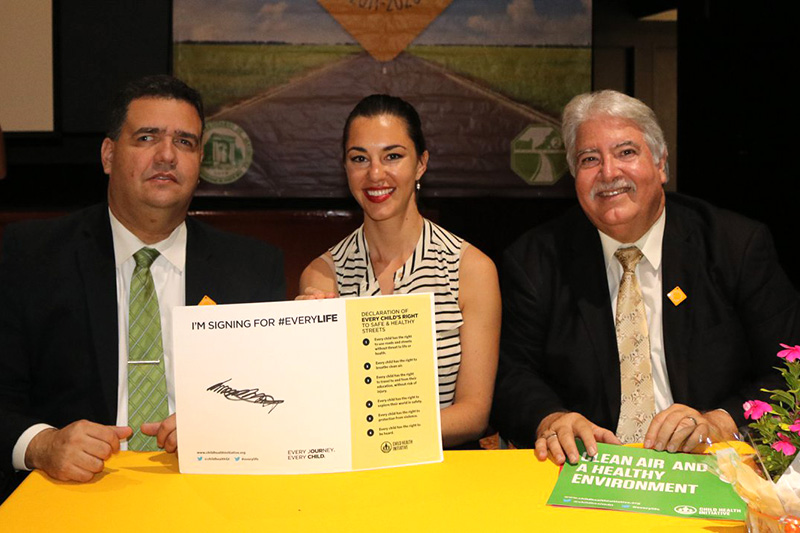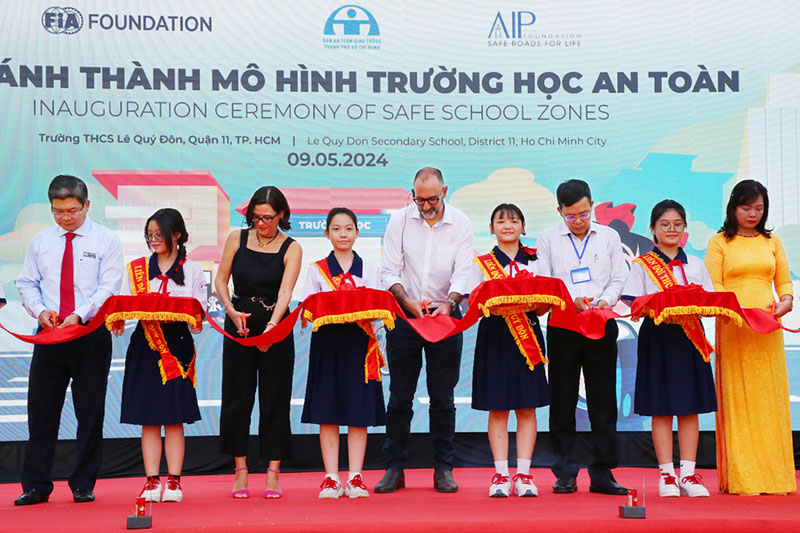UN HQ hosts launch of ‘Unfinished Journey’ report on road traffic and child health
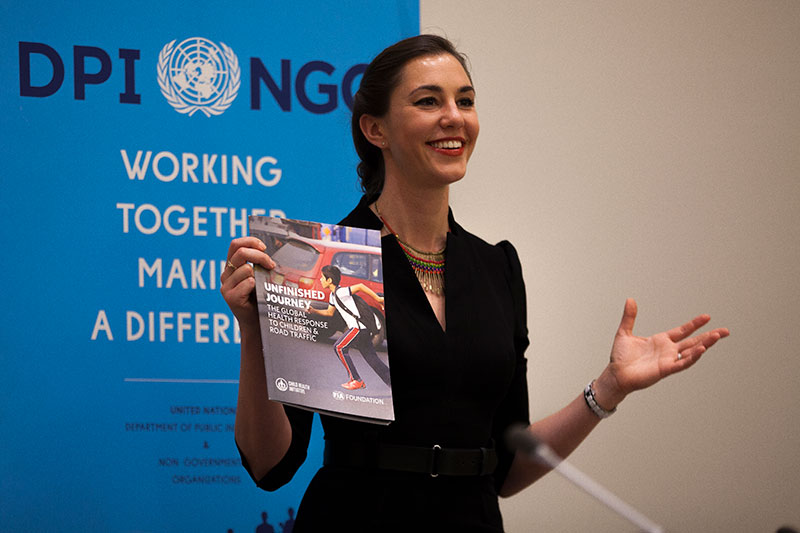
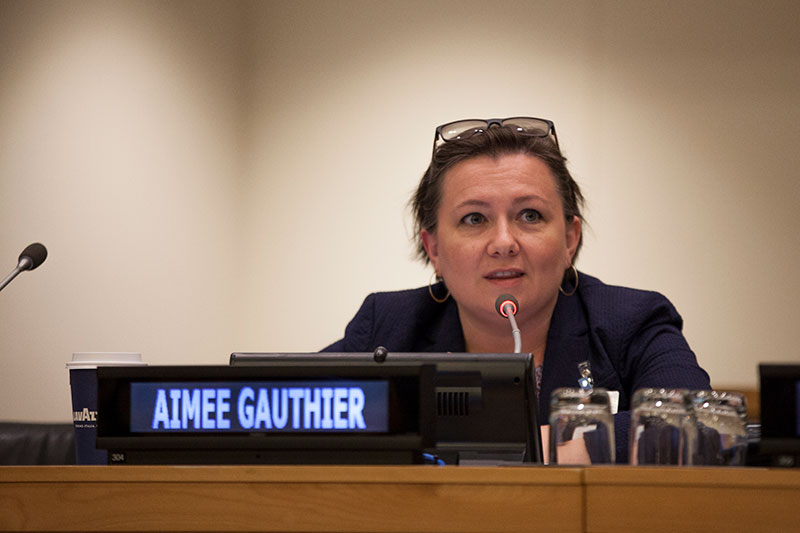
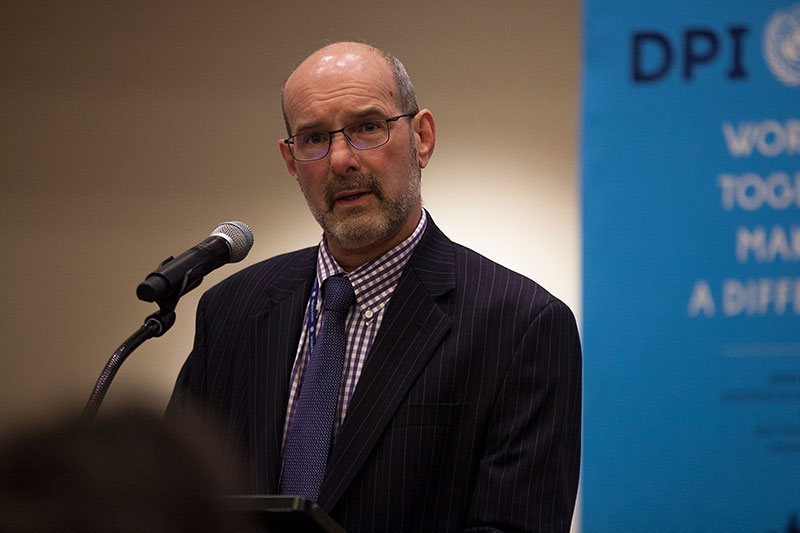
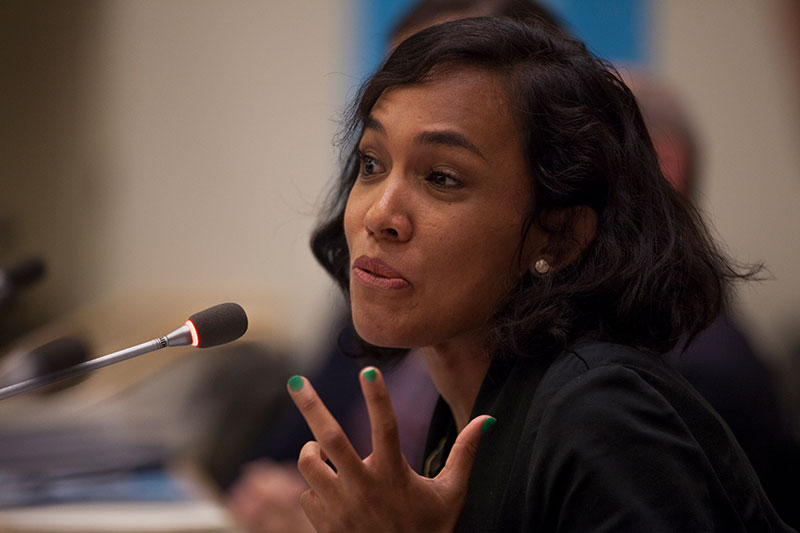
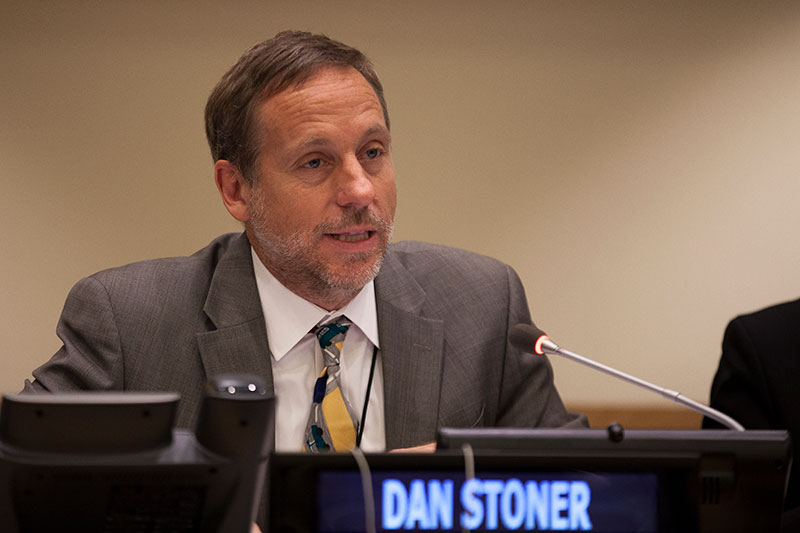
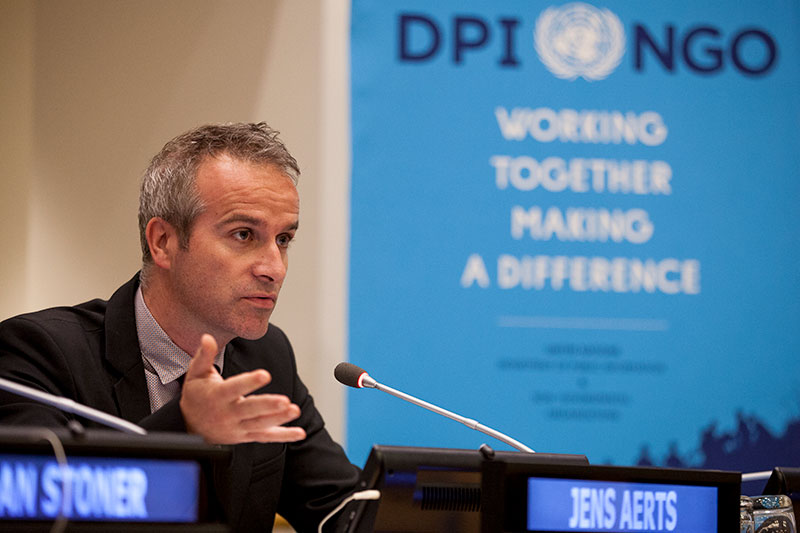
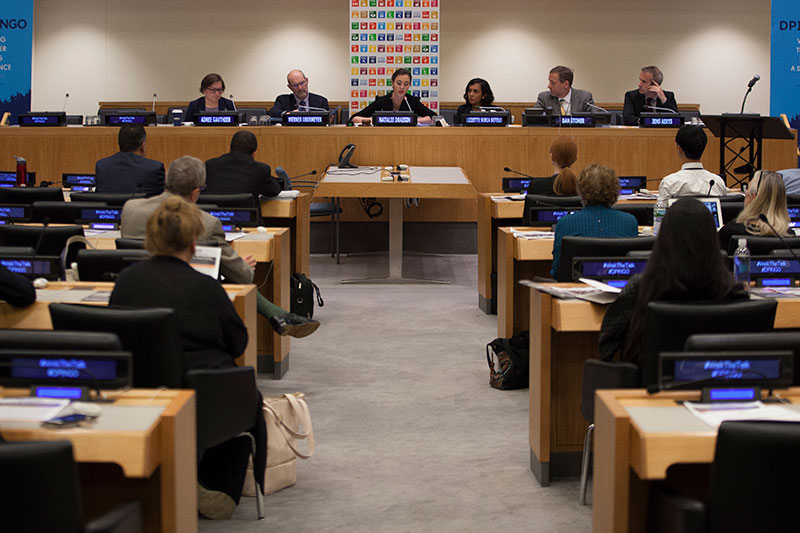
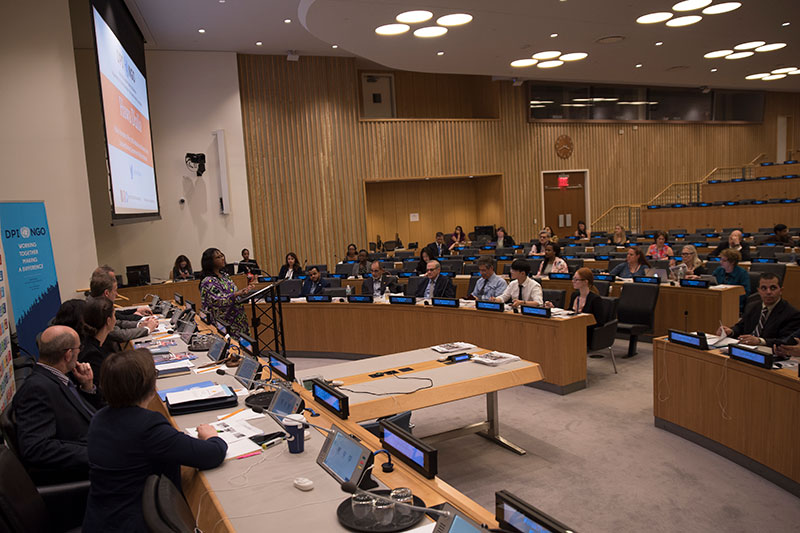
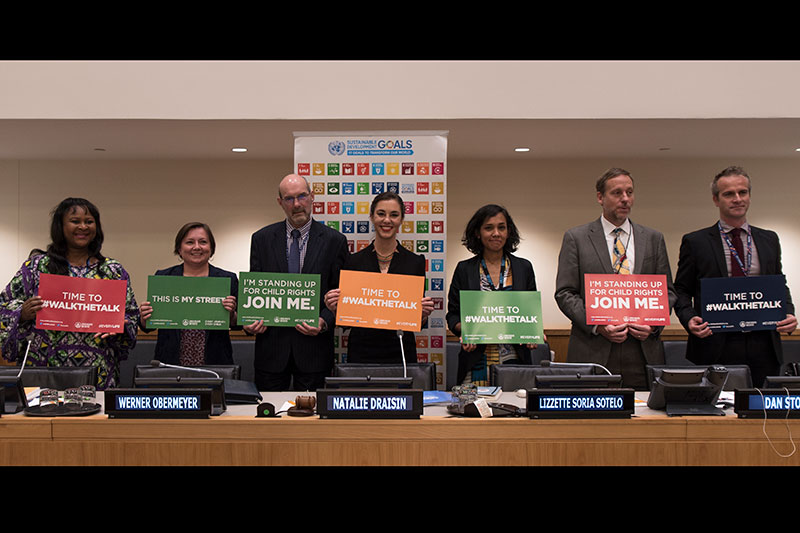
The World Health Organization, UN Women, UNICEF, Save the Children, and the Institute for Transportation Development and Policy gathered to launch the FIA Foundation’s latest report, ‘Unfinished Journey.’ Together, they echoed the report’s recommendations and urged a coordinated approach to tackling the leading killer of adolescents – road traffic crashes – to achieve wider health outcomes and Sustainable Development Goals.
Co-organized by the UN Department of Public Information NGO Relations and the FIA Foundation, ‘Paving the Way to Road Safety’ explored the links between road safety, child and adolescent health, and women’s safety on public transportation. Panelists laid the foundation for the FIA Foundation’s report, Unfinished Journey, which urges the integration of road traffic injury prevention, air pollution and child NCDs into the UN’s ‘Every Woman, Every Child’ health strategy; sets out health and environmental benefits of child-friendly health streets; and calls for a first ever UN Summit on Child & Adolescent Health. The panel joined others at the World Health Assembly in Geneva and the International Transport Forum in Leipzig in launching the report.
Presenting the report, Natalie Draisin, Director of the North American Office and United Nations Representative said, “This is not just a road safety, obesity, or noncommunicable disease epidemic. Road traffic injuries and deaths are human rights violations, and this is public health epidemic. Roads are the veins through which our society’s health and economy flows, but we’re clogging them with traffic jams.
The causes are linked, so the response must be, too. We must move beyond talking about road safety, to wider health outcomes. We all play a role and we all share the same agenda – to achieve sustainable development.”
The panel, attended by over 100 UN Missions, NGOs, and others, and viewed online, provided tools and resources to integrate road safety into policies and programs. Mr. Werner Obermeyer, Deputy Executive Director, World Health Organization, discussed the links between air pollution, road safety, and health: “Nine out of 10 people worldwide don’t breathe air that is safe. In cities, 70% of people are exposed to toxic air pollution. Investments in sectors outside of health, like sustainable energy or efforts to fight climate change, benefit health.”
Recognizing the impact of air pollution and unsafe roads on children in cities, UNICEF launched a Handbook on Child Responsive Urban Planning. It reflects the organization’s increasing efforts in the area, including road safety programming in nine countries with support from the FIA Foundation. Mr. Jens Aerts, Urban Planning and Policy Expert, Division of Data Research and Policy, UNICEF, said. “The FIA Foundation’s report rings true – This is an Unfinished Journey. We must talk about roads, and how they are planned. Were they planned with people in mind? With children? Such lack of planning is at the core of this urban epidemic. I call for every city to include safety for children in their planning efforts. Kids must be part of the discussion as well - we share with them the responsibility to create the future they need and want.”
Children’s voices are at the heart of the FIA Foundation’s #EveryLife campaign and Declaration for Every Child’s Right to Safe and Healthy Streets. Ms. Lizzette Soria Sotelo, Technical Specialist on Ending Violence against, UN Women, said: “To plan our cities, we cannot just turn to the planners. We must also ask women, children, men, and boys – the people who use our cities every day. They are experts, too. Women in particular are often harassed in public spaces and on public transportation. It’s a different kind of road safety – but it is linked to children’s health outcomes. When women don’t have safe mobility options, their children are affected.”
“Public transportation is designed for the male commute, not for the women who are often the primary caretakers,” said Ms. Aimée Gauthier, Chief Programme Officer for the Institute for Transportation and Development Policy. ITDP has been making cities safer for all by focusing on women and children, throughout the world. “When we think about designing streets for kids, we have to start with pedestrians. Mexico City is a great example. We’re implementing Vision Zero for Youth with support from the FIA Foundation. It’s part of the wider Vision Zero approach, which focuses on speed management - the main determinant in the number of fatalities and severity of injuries. Just seven months into implementation, the city saw an 18% decrease in fatalities on roads.”
Also working in Mexico City, Save the Children has seen inextricable links between childhood obesity prevention programs and unsafe roads. When children cannot walk or cycle to school, or safely play outside, physical inactivity and noncommunicable diseases result. This clear connection has led the organization to include road safety in their school health and nutrition programs and wider efforts, with funding from the FIA Foundation. Mr. Dan Stoner, Vice President for International Programs, Education and Child Protection, said: “When we looked into why children we sponsored were dying, we realized that many of them were because of road traffic crashes – which is also the #1 killer of our staff.”
The FIA Foundation is grateful for the immense efforts of UN DPI NGO in organizing this panel and highlighting the critical links between road safety and the areas covered by its global network.
